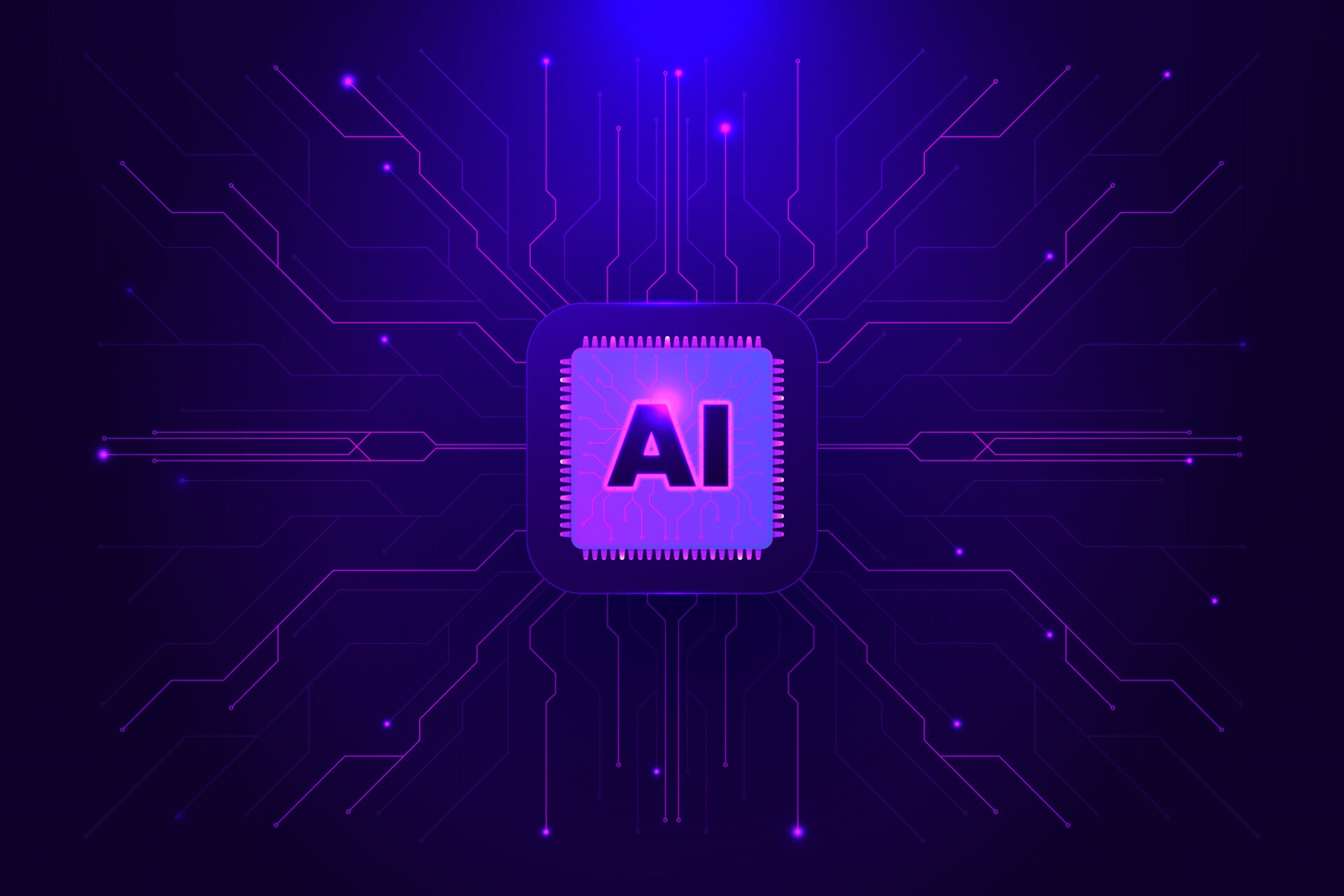When people hear “artificial intelligence,” they often think of ChatGPT. But the world of AI technologies goes far beyond text generation. Today’s AI solutions help businesses automate routine tasks, extract value from business data, and make smarter, faster decisions based on advanced data analytics.
From sales and production to customer service and HR, AI-powered tools enhance operational efficiency, reduce costs, and create a sustainable competitive edge. In this article, we’ll explore how AI in business is already improving real-world processes – and what it takes to get started.
What AI Really Is – A Quick Overview
Artificial intelligence (AI) refers to systems that analyze business data, identify patterns, and make decisions in real time—automatically and at scale. These business AI technologies are powered by machine learning, deep learning, computer vision, and natural language processing (NLP). Together, they enable companies to automate time consuming tasks and generate actionable insights that drive better decisions.
AI systems stand out for their speed, scalability, and adaptability. Whether it’s an AI-powered chatbot, a predictive analytics tool, or a generative content engine—modern AI tools tackle complex tasks with minimal human input, helping teams focus on strategic goals.
By integrating artificial intelligence into their business operations, companies unlock a clear competitive advantage. Automating routine tasks frees up internal resources, while real-time data interpretation supports smarter decisions—fast.
Typical Business Processes with AI Potential
AI is most impactful where tasks are repetitive, data-driven, or time consuming. These areas are ideal for process automation and ai driven solutions that reduce costs and improve accuracy. Common business operations that benefit from AI tools include:
- Email sorting and prioritization
- Real-time data analysis for business intelligence
- Automated content creation with generative AI
- Predictive maintenance in manufacturing
- AI-powered lead scoring in sales
- Chatbots for customer service and internal support
- Robotic Process Automation (RPA) for invoices and contracts
AI doesn’t replace human creativity—it amplifies it. By automating repetitive tasks, it creates room for innovation, collaboration, and employee satisfaction.
Sales & Marketing
Sales teams and marketing departments are leveraging AI tools to better understand customer behavior, personalize communication, and run campaigns more effectively. AI-powered solutions analyze customer data to identify high-potential leads, predict buying intent, and fine-tune personalized marketing strategies across channels.
Machine learning algorithms support dynamic lead scoring based on real-time engagement and historical interactions. Generative AI assists in content creation—writing targeted emails, social posts, and landing pages matched to each customer’s preferences and behavior patterns.
For market research and customer relationship management, AI tools extract insights from surveys, reviews, and interactions to spot trends, anticipate demand, and support loyalty-building strategies.
Marketing teams benefit from automated A/B testing, campaign optimization, and real-time ad performance insights. Platforms like HubSpot, Salesforce, and Adobe integrate business AI to help teams make informed, data driven decisions throughout the entire customer journey.
How AI improves sales and marketing:
- Intelligent lead scoring and conversion forecasting
- Personalized communication with AI-generated content
- Predictive analytics for customer behavior analysis
- Automated campaign testing and optimization
- Social media automation with content suggestions and scheduling
Production
In manufacturing, AI tools enhance process reliability, minimize downtime, and boost resource efficiency. When combined with IoT sensors, AI systems create intelligent production environments that continuously optimize themselves.
Real-time monitoring detects anomalies early and suggests corrective actions—avoiding costly disruptions. Predictive maintenance schedules service exactly when needed, improving machine performance and extending lifespan.
Generative AI in product design accelerates development by simulating variants and proposing new concepts based on given parameters. This enables faster time-to-market with reduced R&D costs.
AI in production enables:
- Real-time fault detection and root cause analysis
- Predictive maintenance for cost-effective upkeep
- Generative design for rapid product iteration
- Data-driven optimization of manufacturing workflows
- Automated adjustments to production conditions
Logistics & Supply Chain Management
AI technologies bring clarity and agility to supply chain operations. With access to historical and live data, businesses can better predict demand, optimize inventory levels, and respond faster to disruptions – supporting long-term supply chain optimization.
Machine learning models improve forecasting in procurement, warehousing, and distribution. Businesses can align deliveries with predicted demand while minimizing waste. Generative AI even helps forecast market trends to support strategic purchasing decisions and production planning.
AI also boosts sustainability efforts: it reduces delivery distances, lowers fuel consumption, and cuts CO₂ emissions. In parallel, RPA tools automate customs forms, invoices, and shipment logs—reducing the need for manual data entry and preventing human error.
Benefits for supply chain management:
- Accurate demand forecasting and inventory management
- Dynamic route optimization based on live data
- Shorter delivery times and reduced CO₂ footprint
- Automated processing of shipping and customs paperwork
- Early detection of supply bottlenecks
Human Resources & Recruiting
AI-powered tools are reshaping HR and recruiting by enhancing fairness, transparency, and efficiency. From resume screening to personalized learning paths, AI in business helps HR teams focus on people—not paperwork.
AI systems can automatically evaluate applications, identify ideal candidates, and flag engagement risks. Predictive analytics provide insight into employee behavior, enabling proactive retention and workforce development.
Personalized upskilling suggestions and AI agents (like chatbots) support employees around the clock—answering HR questions, assisting with onboarding, and guiding career planning.
AI solutions for HR:
- Automated resume screening and candidate scoring
- Predictive models for employee retention
- Personalized training and development paths
- 24/7 chatbot support for HR inquiries
- Feedback analysis and internal communication insights
Customer Support
AI enables businesses to deliver customer service that’s faster, more consistent, and available 24/7. NLP-powered chatbots resolve common inquiries automatically, while smart routing ensures that more complex issues reach the right support agents.
These systems use historical interaction data to offer tailored responses in real time—leading to a smoother customer experience. In industries like finance and e-commerce, AI-powered fraud detection features can also be integrated into customer service systems to flag suspicious behavior during live interactions or transactions.
The result: reduced wait times, improved trust, and enhanced customer satisfaction—a major win for digital customer service operations.
AI-powered customer service improves:
- Instant responses to frequent customer questions
- Intelligent routing to appropriate support agents
- Personalized recommendations based on history
- Reduced handling times and operational costs
- Natural, human-like conversations with NLP
The Path to the Right AI Solution
Implementing AI in business starts with asking the right questions: Which processes are still too slow, error-prone, or expensive? Where do repetitive tasks consume valuable time? What business needs can AI address?
From there, companies can define AI use cases and choose tools that fit their existing tech stack. A good starting point is the SMART framework:
- Specific: Clear goals
- Measurable: Defined KPIs
- Attractive: Tangible value for the team
- Realistic: Feasible within resources
- Time-bound: Set implementation schedule
Starting small – with a pilot AI deployment – helps businesses gather experience, test outcomes, and address integration issues early on. Transparent communication and openness to innovation are key success factors.

How Companies Should Analyze Their Processes
AI only works as well as the data it’s given. That’s why advanced data analytics and structured datasets are essential before deploying AI models. Poor data leads to poor predictions.
Important questions to ask:
- Which tasks rely heavily on business data?
- Are existing datasets complete and well structured?
- Where can AI technologies provide real value?
- Is there a vision for AI across the company?
Assembling a cross-functional team—combining IT, operations, leadership, and external advisors—ensures you approach AI integration from all angles.
In addition to productivity goals, companies should also consider risk management as a core aspect of their AI strategy. AI technologies can help identify process vulnerabilities, forecast operational risks, and reduce exposure to compliance or security issues – especially in highly regulated industries.
Proposal for a Free Initial Brainstorming Session
Many small businesses are unsure where to begin with artificial intelligence. A free brainstorming session with an experienced AI partner can offer clarity: Which processes offer the greatest ROI? Which AI tools are realistic for your industry and size?
This collaborative session focuses on identifying concrete use cases and mapping out a strategic, cost-effective AI implementation – tailored to your business needs.
The outcome? A clear roadmap that includes relevant AI tools, high-impact pilot projects, and realistic timelines for execution.
Which Processes in Your Company Are Ready for AI?
Not every task is a match for AI – but many are. Start by looking for:
- Repetitive tasks: Form entry, status updates, system syncing
- Data-driven decisions: High volumes of analysis, e.g. pricing or demand forecasting
- Scalable operations: Processes that grow with your business
Examples of AI in action:
- RPA-based invoice processing and document recognition
- Customer service chatbots
- Dynamic pricing for online stores
- Lead nurturing in B2B marketing
- Predictive maintenance for machinery
The earlier companies begin testing and deploying AI, the sooner they benefit from improved efficiency, lower costs, and smarter decision making.
Conclusion
AI enables businesses to rethink how work gets done. Whether you’re in marketing, supply chain management, HR, or sales—AI-powered tools are transforming operations across the board.
The secret to success lies not in the technology alone, but in the smart selection and seamless integration of AI solutions. By adopting artificial intelligence in business processes today, companies position themselves for sustainable growth and a stronger competitive edge.
Ready to Get Started?
Curious how AI can help your business run more efficiently? Book a free, no-obligation consultation. Together, we’ll identify high-impact opportunities and create a practical plan for AI-powered innovation.
Start your journey into smarter business operations – now.
Frequently Asked Questions
What is the main advantage of integrating AI into business processes?
The main advantage of integrating AI into business processes is its capability to automate repetitive tasks and enhance decision-making, resulting in improved operational efficiency.
This integration allows businesses to concentrate on strategic initiatives by automating routine tasks, freeing up time and resources. It reduces the burden of mundane activities, enabling teams to focus on growth and innovation, ultimately enhancing decision-making and operational efficiency.
How can AI improve customer support operations?
AI enhances customer support operations by leveraging chatbots for 24/7 inquiries management and efficiently directing requests to the right agents.
This leads to faster response times and improved customer satisfaction.
What are some examples of AI applications in human resources?
AI applications in human resources enhance efficiency and personalization, exemplified by automating resume screening, predicting employee turnover, personalizing development, and creating tailored wellness programs.
Such integration can significantly improve HR management effectiveness.
Why is it important to analyze data quality before implementing AI?
It is essential to analyze data quality before implementing AI because accurate and reliable data is fundamental for optimal AI performance. Poor data quality can result in ineffective outcomes and compromise the success of the AI initiative.
What services does Linvelo offer for AI integration?
Linvelo provides comprehensive software development, digital strategy consulting, and customized AI solutions to help businesses meet their objectives and tackle operational challenges effectively.






